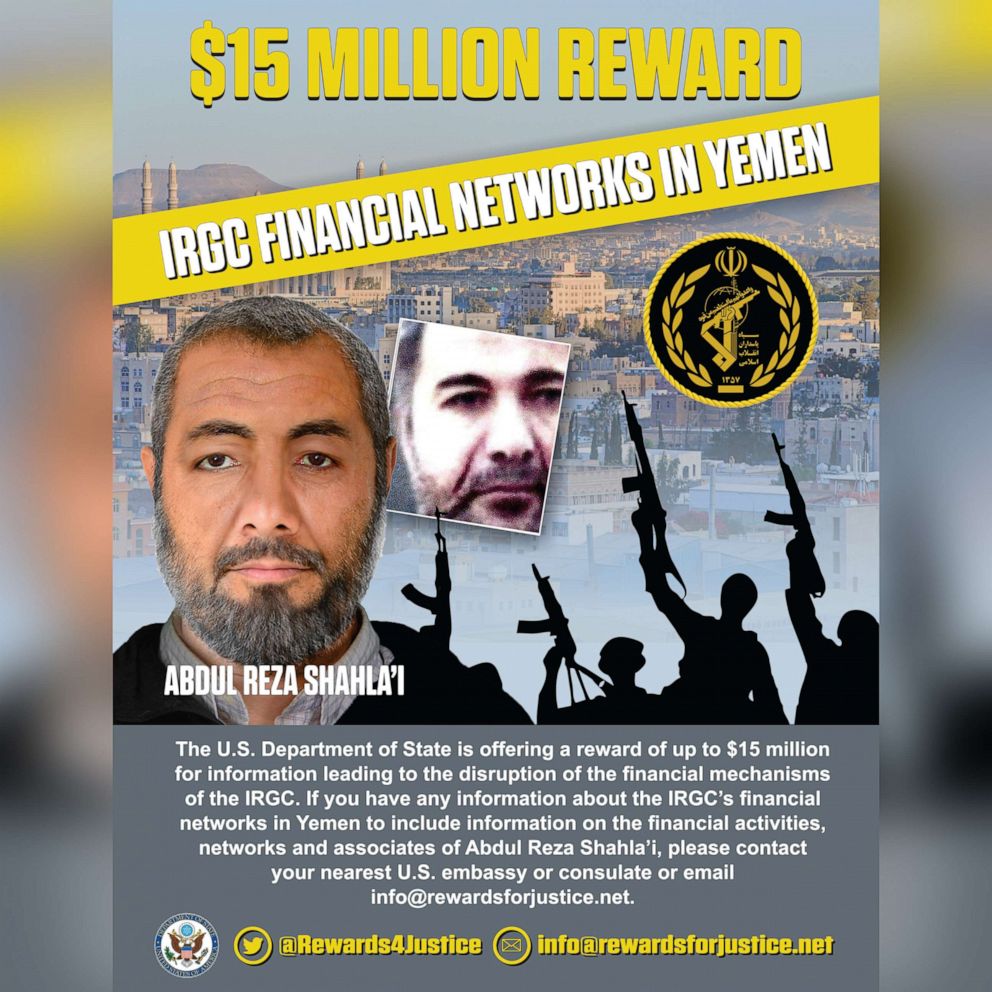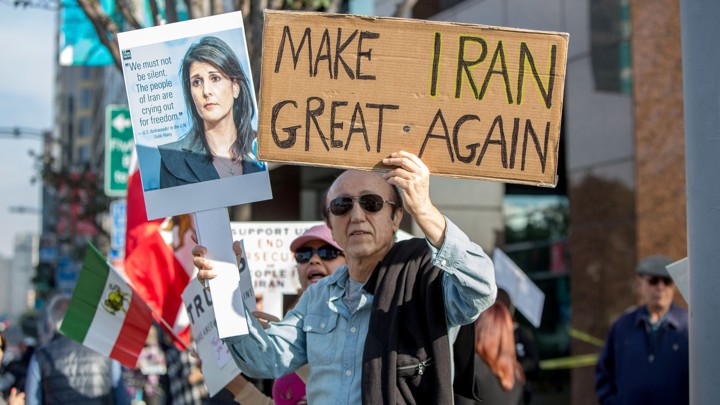A trial continues as fentanyl drug traffickers are sentenced in court, Thursday, Nov. 7, 2019, in Xingtai, north China’s Hebei Province. The court sentenced at least nine fentanyl traffickers Thursday in a case that was a culmination of a rare collaboration between Chinese and U.S. law enforcement to crack down on global networks that manufacture and distribute lethal synthetic opioids. (Jin Liangkuai/Xinhua via AP)
XINGTAI, China (AP) — A Chinese court sentenced nine fentanyl traffickers on Thursday in a case that is the culmination of a rare collaboration between Chinese and U.S. law enforcement to crack down on global networks that manufacture and distribute lethal synthetic opioids.
Liu Yong was sentenced to death with a two-year reprieve, while Jiang Juhua and Wang Fengxi were sentenced to life in prison. Six other members of the operation received lesser sentences, ranging from six months to 10 years. Death sentences are almost always commuted to life in prison after the reprieve.
Working off a 2017 tip from the U.S. Department of Homeland Security about an online drug vendor who went by the name Diana, Chinese police busted a drug ring based in the northern Chinese city of Xingtai that shipped synthetic drugs illicitly to the U.S. and other countries from a gritty clandestine laboratory. They arrested more than 20 suspects and seized 11.9 kilograms (26.2 pounds) of fentanyl and 19.1 kilograms (42.1 pounds) of other drugs.
In form, the enterprise resembled a small business, with a perky sales force that spoke passable English, online marketing, contract manufacturing, and a sophisticated export operation, according to U.S. and Chinese law enforcement.
But the business had grave implications. Police photographs of the seizure show a dingy, chaotic scene, with open containers of unidentified chemicals and Chinese police in rubber gloves and breathing masks.
Liu and Jiang were accused of manufacturing and trafficking illicit drugs. The others were accused of trafficking.
Chinese officials said the Xingtai case was one of three fentanyl trafficking networks they are pursuing based on U.S. intelligence, but declined to discuss the details of the other cases, which are ongoing.
Austin Moore, an attaché to China for the U.S. Homeland Security Department, said the Xingtai case was “an important step” showing that Chinese and U.S. investigators are able to collaborate across international borders.
Moore said Chinese police identified more than 50 U.S. residents who tried to buy fentanyl from the Xingtai organization. Those leads prompted over 25 domestic investigations and have already resulted in three major criminal arrests and indictments in New York and Oregon, he said.
Scrambling to contain surging overdose deaths, Washington has blamed Beijing for failing to curb the supply of synthetic drugs that U.S. officials say come mainly from China. In August, President Donald Trump lashed out at Chinese President Xi Jinping for failing to do more to combat illicit opioid distribution in China’s vast, freewheeling chemicals industry. U.S. officials have reportedly moved to link Beijing’s efforts on fentanyl to U.S. trade talks.
Yu Haibin, deputy director of the Office of China National Narcotics Control Commission, on Thursday called allegations that Chinese supply is at the root of America’s opioid problem “irresponsible and inconsistent with the actual facts.”
“Drug crime is the public enemy of all humankind,” he added. “It’s about the life of human beings. It should not be related with the trade war or other political reasons.”
Chinese officials have been at pains to emphasize the efforts they have made to expand drug controls and crack down on illicit suppliers, even though synthetic opioid abuse is not perceived to be a significant problem in China.
But prosecuting cases against a new, rising class of Chinese synthetic drug kingpins has remained a challenge. Profit-seeking chemists have adroitly exploited regulatory loopholes by making small changes to the chemical structure of banned substances to create so-called analogs that are technically legal.
U.S. officials have been hopeful that China’s move earlier this year to outlaw unsanctioned distribution of all fentanyl-like drugs as a class will help constrain supply and make it easier to prosecute Chinese dealers.
According to the U.S. Centers for Disease Control and Prevention, more than 500,000 Americans died of drug overdoses in the decade ending in 2017 — increasingly, from synthetic opioids like the ones sold by the Xingtai network.
The American opioid crisis began in the 1990s, when the over-prescription of painkillers like OxyContin stoked addiction. Many people who became hooked on pain pills later moved to heroin. Fentanyl — an even more potent lab-made drug that raked in profits — then entered the U.S. illicit drug supply, causing overdose deaths to spike.
*** 
The question of what, if any, responsibility China should bear for fuelling a deadly opioid crisis in the United States has been a bitter source of contention between the two superpowers.
China’s jailing of nine people Thursday for trafficking and selling fentanyl to US buyers following a rare joint probe with US law enforcement would suggest Beijing is moving to address the problem.
But experts warn that while the case is a big step, it is not enough to stop the drug from pouring into the United States — from China and increasingly from Mexico as drug cartels pick up the slack.
Here is a look at the opioid crisis and the tensions it has caused between China and the United States:
What’s fentanyl?
Fentanyl was introduced to the US market in the 1960s as an intravenous anaesthetic to manage severe pain. It is used for cancer patients or those receiving end-of-life care.
The drug is 50 times more potent than heroin, with only a few milligrammes — equivalent to a few grains of sand — enough to kill someone.
It is trafficked into the United States, primarily from China and Mexico, in the form of powder or tablets, and is sometimes mixed with heroin and cocaine.
Fentanyl and other synthetic opioids killed 32,000 people in the US last year according to government data.
The drug can be bought online and shipped to the United States via regular mail, posing a major challenge for postal inspectors sifting through mountains of packages.
What’s China doing about it?
Trump has long urged China to crack down on fentanyl.
It has even become a bargaining chip in the trade spat between the world’s two largest economies.
“High-level officials continue to blame China for the failure to stem the flow and that might be impacting the trade negotiations,” Bryce Pardo, a policy researcher at RAND Corporation, told AFP.
When Trump and President Xi Jinping declared a trade war truce at a summit in Argentina in December 2018, the Chinese side said it would designate all variants of fentanyl as controlled substances.
Trump hoped the move would be a “game changer” because China applies the death penalty against drug dealers.
It was not until five months later, in May, that China finally designated all fentanyl analogues as a controlled substance.
Before the ban, smugglers could skirt the law by changing the formula to make fentanyl-like drugs.
But three months later, Trump complained that China was still not doing enough.
Then came the news on Thursday that a court in northern Hebei province had handed a suspended death sentence to a smuggler and jailed eight others for terms ranging from six months to life after the first successful joint US-China investigation against a fentanyl operation.
Is it enough?
“It’s one case. You can count it as a success and it is,” Mike Vigil, a former head of international operations at the US Drug Enforcement Administration (DEA), told AFP.
“But there is much more to be done. That’s a very tiny tip of the iceberg,” Vigil said.
Experts say China lacks the manpower to inspect all laboratories that produce fentanyl.
“The big problem is that there are so many laboratories and they have about 2,000 inspectors, which is not nearly enough,” Vigil said.
Scott Stewart, a security analyst at US intelligence consultancy Stratfor, said the flow of fentanyl and its precursor chemicals will not stop until China addresses “deeper problems” such as going after “powerful players” and lifting tax credits companies get for selling certain chemicals.
Is the ban working?
While the US welcomed China’s ban on all types of fentanyl, the move appears to have shifted production to Mexico, where drug cartels have quickly adapted to new law enforcement actions.
Chinese labs also produce the chemicals needed to make fentanyl and Mexican drug traffickers are importing them to produce the narcotic themselves, Vigil said.
“Precursor chemicals are fuelling the rise in the manufacture of fentanyl in Mexico by the major drug cartels,” Vigil said.
The DEA said Monday the cartels were making “mass quantities” of fentanyl-laced drugs.
China, for its part, continues to deny it is the source of the problem.
Following Thursday’s court case, Yu Haibin, a Chinese anti-drug official, pointedly said American deaths from overdoses had continued to rise after Beijing cracked down on all types of fentanyl.



 photo Miami Herald
photo Miami Herald photo The Atlantic
photo The Atlantic


 (in full disclosure, I have done several interviews with former DEA Special Agent, Derek Maltz on Operation Cassandra)
(in full disclosure, I have done several interviews with former DEA Special Agent, Derek Maltz on Operation Cassandra)